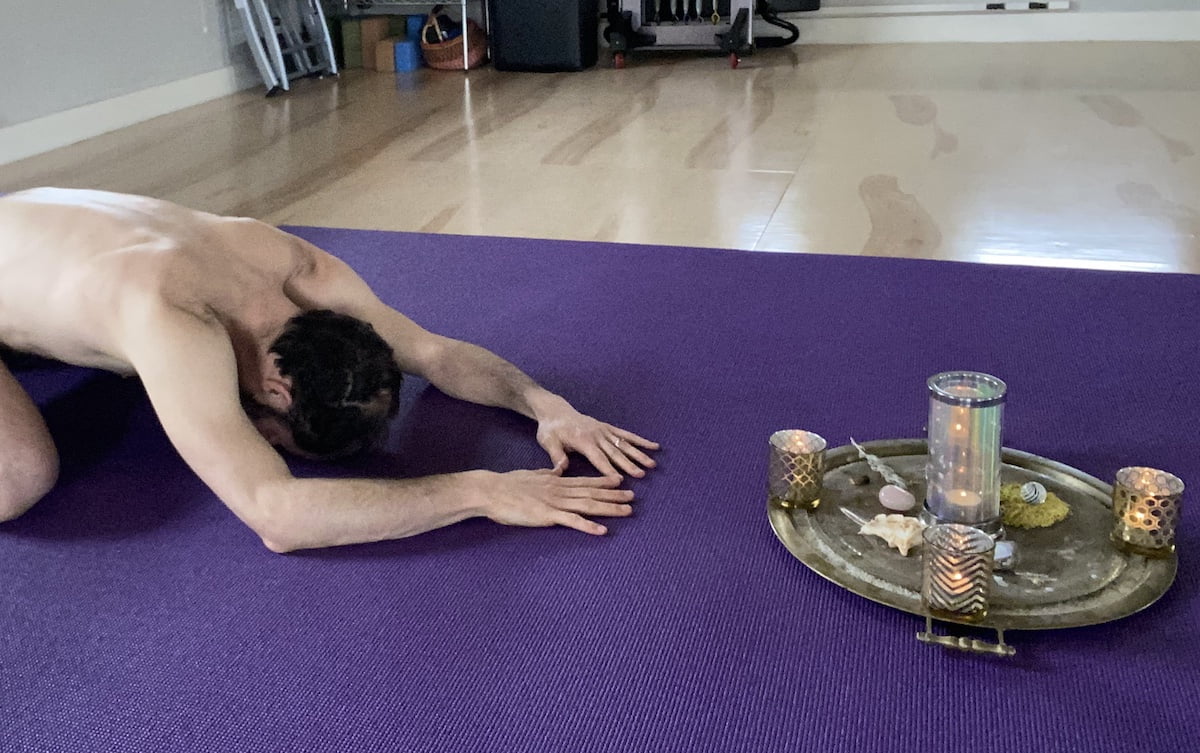I finished my last post with “I will not be shamed.” At the time I wrote it I could feel something yet to be revealed about these words—a charge by which they weren’t as they appeared to me. Now I’m given that it is not up to me who does or does not shame me; my personal resistance is only a way of handling something outside of my control. I also find that the lived truth of my statement showed itself to be more like “Don’t shame me, I’ll do it myself!” My most naked truth is “I’m sitting with shame.”
As I bring witness to my shame I am in awe of it as an internal relationship with the communal field. In shame I bring the magnifying glass of my perception to question whether I am in integrity with the needs and desires of ‘us’. In the larger ecosystem of human and divine consciousness am I acting with care? Shame can bring great service and personal/spiritual alignment, yet it can also be a damaging paranoia. As I sit with my shame I am asked to hold the weight of discernment with an open heart. My personality—the person I believe myself to be—cannot do this alone. And yet as I sit here writing, it is this very personality who writes. Discernment clearly reaches beyond my mind into my heart, and also into that which cannot be named. It is developed through practice, and I feel that the more I step into leadership the more sharply it is honed.
I have had some incredible conversations with people since my last post. While some of these have been purely supportive of my statement, the ones that have been most intriguing are the ones that have challenged me. A number of people have asked me why I did not offer an apology. If I were to write that statement today it surely would have included an apology, both to you as someone who witnesses me and also to the person with whom I was out if integrity. One reason I did not offer this then is the resistance in my personality to take on shame. Another is because I wished to be clear stating my boundary that spreading inflated rumors about me is not okay with me. That remains true, and can stand simultaneously with apology. Some people have reflected to me that if someone feels assaulted then assault took place. I don’t agree. Yet, I do feel shame that someone felt assaulted by me, alongside compassion for all of us. I am grateful for the shame, however uncomfortable, as it has helps me be more discerning and cause less harm. Ultimately, I offer you and they an apology; I am so sorry to have created harm.
I spend a lot of time and care deciding what to write here. I wish to write with discernment and in service, yet I’m also seeing how much I hide about myself in an effort to avoid feeling ashamed. I am sitting with this deeply now, seeing also how much I respect and appreciate those who speak up in places like social media where they also regularly have knives thrown at them. Some voices are triggering to others not because they are out of integrity, but because they speak of things that are uncomfortable for and challenge the communal consciousness. This role may be mine to live, and yet I will never reach anything close to the perfection that would protect me from also making big, shameful mistakes. To be able to stand up to the shaming of others requires that I sit vulnerably with my internal voice of shame, asking whoever it is inside me that can discern: Am I in integrity in this moment? Can I be naked enough to let you see me wonder? I pray that I can.

